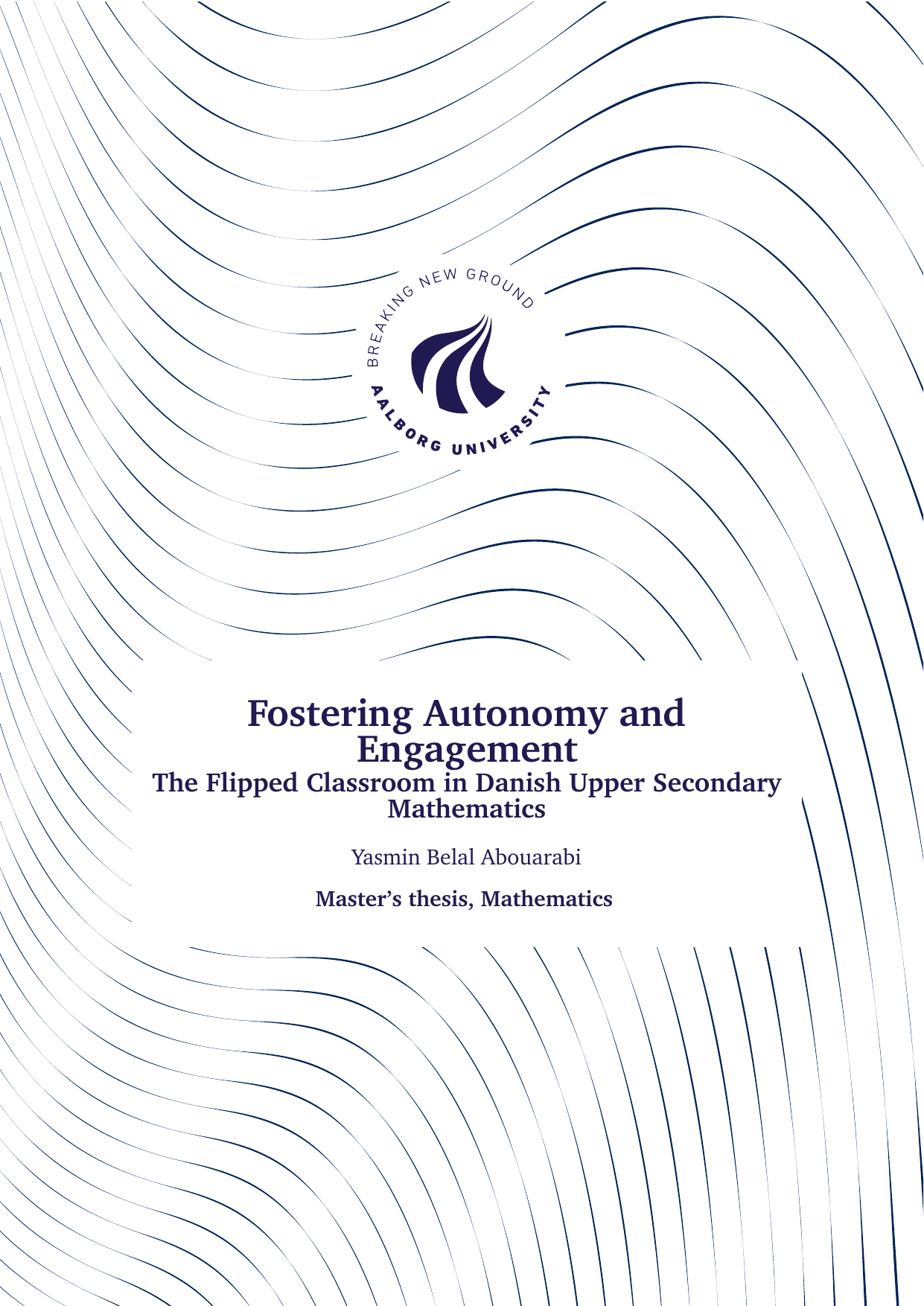
Fostering Autonomy and Engagement: The Flipped Classroom in Danish Upper Secondary Mathematics
Translated title
Fostering Autonomy and Engagement
Author
Term
2. Term (Master)
Publication year
2024
Submitted on
2024-01-03
Abstract
This master's thesis explores the flipped classroom model in a Danish upper secondary mathematics class, guided by Self-Determination Theory (SDT), Cognitive Load Theory (CLT), Bloom's Taxonomy, and Vygotsky's Zone of Proximal Development (ZPD). The study investigates the transition from traditional, teacher-centric teaching methods to a more dynamic, student-engaged approach. It examines the ability of flipped classroom to address misconceptions in mathematics education and its potential in steering students away from surface learning. Utilizing a mix of pre- and post-implementation data, including questionnaires and interviews, the research evaluates the impact on student engagement, comprehension, and preparedness for academic challenges. The findings point to the effectiveness of a blended approach that integrates traditional teaching with flipped classroom strategies, suggesting this as a viable path to optimize mathematical qualifications in line with the progressive goals of Danish upper secondary education.
Documents
